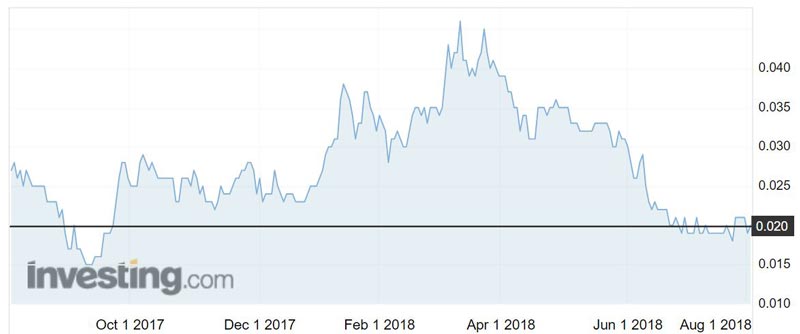Volt signs on major Chinese graphite player
Mining
Volt Resources has inked a second deal to supply graphite from its Bunyu project – this time to a major Chinese player.
The Tanzania-focused graphite explorer (ASX:VRC) has shaken hands with Qingdao Tiangshengda Graphite to supply 9,000 tonnes a year of its graphite for five years.
Investors liked the news, driving shares up 10.5 per cent to 2.1c.
This takes the total stage one production already tied up in sales deals to 10,000 tonnes per annum when combined with the agreement with US-based graphene company Nano Graphene.
Tianshengda is a graphite processor and distributor across China and internationally.
Volt says the company has substantial annual capacity to further process graphite by producing value added products including “expandable graphite”, flake graphite and powder, as well as supplying graphite to the lithium-ion battery market.

“With strong demand in the market and in particular for large flake graphite, we are continuing to progress discussions with additional parties in respect to further offtake opportunities,” chief Trevor Matthews said.
Unlike its battery metals peers, graphite has been a little late to start riding the coat tails of the so-called electric vehicle revolution.
But graphite demand is now on the rise because of China’s continued effort to curtail environmentally damaging production.
Market forecaster Roskill sees the production inspections and temporary closures continuing for the rest of this year, which will impact the Chinese natural flake graphite supply chain.
Demand for expandable graphite is also growing much more quickly than expected.
When treated with acid and heat, graphite flakes split apart and increase in volume by up to 300 times. This expandable graphite can be pressed into sheets and used for heat and fire protection in applications ranging from building materials to consumer electronics and fuel cells.
One major application is building safety — driven by disasters such as the London Grenfell Tower tragedy and China’s push for flame-retardant building materials following an explosion at the Tianjin Port in December 2015.
Expandable graphite requires coarse flake, and historically China has accounted for about 70 per cent of supply.
But the country’s reserves have largely diminished, and supply is under threat by environmental restrictions forcing mine closures.